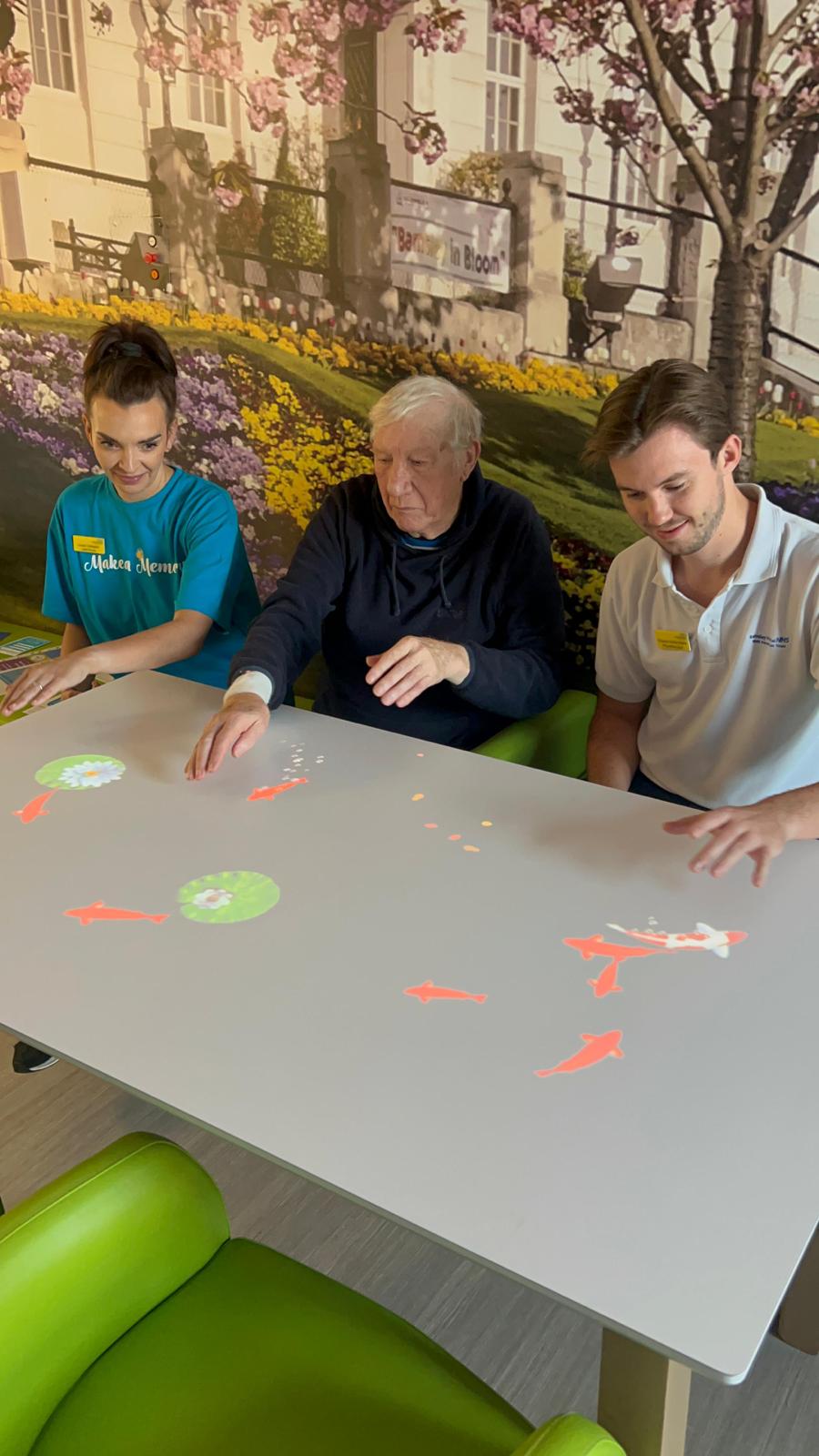Make A Memory Appeal
Our Make a Memory Appeal was a £300,000 appeal to transform our Care of the Elderly Ward at Barnsley Hospital and was completed in March 2024.
You can still help us make a difference for our older patients and those living with dementia by donating here


Making a difference
Making a difference
Why we focused on our patients with dementia
- There are currently over 2,000 Barnsley people with a diagnosis of dementia (including over 80 people between the age of 30-64)
- One in six of us will develop dementia by the time we reach our eighties, chances are that you or someone you know has been affected by the condition
- There are 850,000 people with dementia in the UK, with numbers set to rise to over 1 million by 2025. This will soar to 2 million by 2051
- Dementia is not an inevitable part of ageing
- Dementia is caused by diseases of the brain
- Dementia is not just about losing your memory
- People can still live well with dementia
- Nearly half of all people with dementia experience symptoms of depression
- For many patients with dementia being in hospital can feel a very sad and anxious time as it is different to their day to day routine
Why your support makes a difference

Your support is helping us transform our ward and make a real difference for patients with dementia. The ward supports over 1,100 patients each year.
We are using tried and tested research and practice with the careful use of colour and design, specifically to help patients with dementia to easily navigate their way round the ward and feel more comfortable. We are also helping in supporting other patient pathways such as the Emergency Department to ensure patients have the experience throughout their stay.
When you’re living with dementia, everything can be different. Your support will give patients the confidence to be independent and help them to take part in social activities.
Standing in the shoes of a patient with dementia can mean a line on the floor is a barrier to leaving or entering a room or a shiny floor can look to be wet and slippery. Signs can be confusing and difficult to understand. These things can stop patients in their tracks and prevent them from wanting to move from their hospital beds. If patients with dementia lose their independence it can sometimes be impossible to regain it, making it much harder to get well, with your support we can help stop that happening.
What your donation is funding
- We have worked closely with patients and families to choose the design and equipment which makes the biggest difference to a person with dementia
- We are creating purpose-designed areas for patients and their families
- Bays and bedrooms will be painted in different colours with co-ordinated furniture to help patients find their way back to their beds
- Improved use of signage and bespoke flooring which helps to prevent slips, trips and falls for patients with dementia who are often at increased risk of this
What is dementia?
Dementia is a syndrome (a group of related symptoms) associated with an ongoing decline of brain functioning. This may include problems with:
- memory loss
- thinking speed
- mental sharpness and quickness
- language
- understanding
- judgement
- mood
- movement
- difficulties carrying out daily activities
Alzheimer’s disease is a type of dementia and, together with vascular dementia, makes up the vast majority of cases.
People with dementia can become apathetic or uninterested in their usual activities, or may have problems controlling their emotions. They may also find social situations challenging and lose interest in socialising. Aspects of their personality may change.
A person with dementia may lose empathy (understanding and compassion), they may see or hear things that other people do not (hallucinations). Because people with dementia may lose the ability to remember events or fully understand their environment or situations, it can seem as if they’re not telling the truth, or are willfully ignoring problems.
As dementia affects a person’s mental abilities, they may find planning and organising difficult. Maintaining their independence may also become a problem. A person with dementia will therefore usually need help from friends or relatives, including help with decision making.


